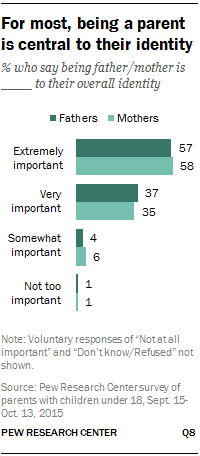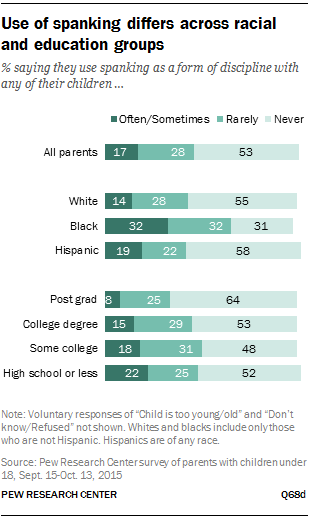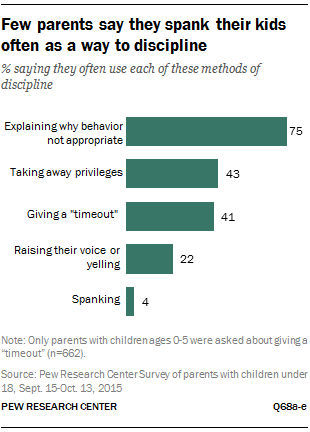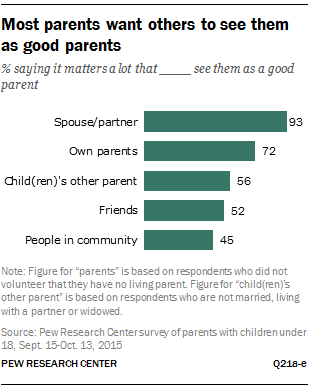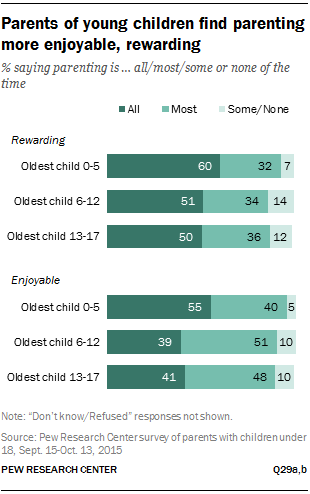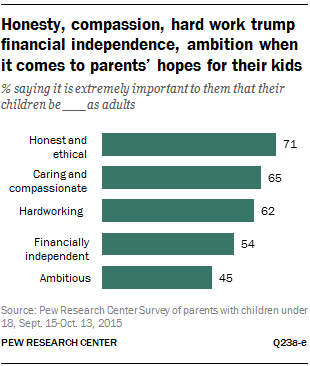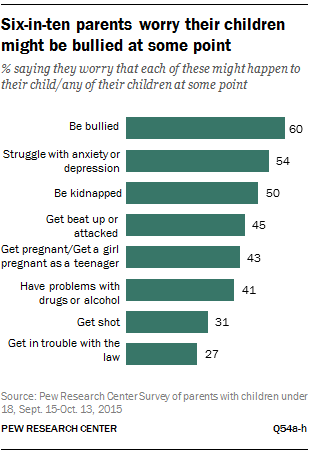Can You Fool God? -- A study of Hosea 6:1-7:2
- mww
- Oct 19, 2022
- 19 min read
Updated: Jun 20, 2025
No. No, you cannot.
Bible Study Ideas and Commentary for Hosea 6:1-7:2
This week, we focus on God as Father -- namely, the Father of children who have turned their backs on His upbringing and chosen to live in wanton sin. But whereas the "prodigal son" came to his senses and came home, the Israelites will follow their sin to their very destruction. This breaks God's heart because He loves His children.
What am I going to do with you, Ephraim? (6:4)

Getting Started: Things to Think About
Your Favorite "Fooler"

There's a quote that we all know: "You can fool some of the people all of the time, and you can fool all of the people some of the time, but you cannot fool all of the people all of the time." It's attributed to Abraham Lincoln.
[Note: as proof that people will argue passionately about anything, I submit -- “You Can Fool All the People”: Did Lincoln Say It? | History News Network]
It's a tremendous quote, and it has been endlessly modified to fit our modern snarky era:
So here's an idea for your opening topic: what's your favorite story of how you fooled someone? Or, what's your favorite story of how you were once fooled?
There are plenty of great quips about fools and foolers. Maybe you would rather share funny stories about people you know who tend to be gullible.
If you don't have any personal stories of any kind on anything related to this topic, maybe you have a story of someone else's fool/hoax/prank.
Pulling off the "ultimate hoax" seems to be the white whale of a number of people with too much time on their hands. You might remember these:
The Balloon Boy. In 2009, a family in Colorado released a weather balloon and then called 911 to say that their son was hiding in the balloon. It got everyone's attention for a while, but it eventually came out that the boy was hiding in the attic because the dad wanted to get a reality show. The parents were arrested and fined.
The Shed at Dulwich. In 2017, a freelance writer proved how easy it was to manipulate search result algorithms by creating a website for a restaurant that didn't exist and getting some friends to post some bogus reviews. The restaurant became the highest rated place in London with a wait list of 6 months. Again, it didn't exist.
The Onion Charger. In 2007, a joke site purported to demonstrate how you could charge your ipod with an onion and a glass of Gatorade. Let's just say that a lot of people tried it. Eventually, the Mythbusters busted it.
The Fake NYT Bestseller. In 1969, a Newsday columnist was so fed up with the poor quality of books that he enlisted the help of fellow columnists to write the absolute worst, smuttiest book they could. It made the NYT Bestsellers list before the authors (in extreme frustration) revealed their hoax.
The Rose Bowl Hoax. This is more a prank than a hoax, but in 1691, some Cal Tech students managed to fool a cheerleader into giving them Washington's plans for a giant flip-card message in the student bleachers. They then spent nights secretly changing out all of the cards to say "Cal Tech" (who wasn't even playing).
Why do you think some people like to try to fool or hoax others?
There is, as you might have guessed, a simple tie-in to this week's lesson:
"You can fool some of the people all of the time, and you can fool all of the people some of the time, but you cannot fool God."
This Week's Big Idea: It's Hard to Be a Parent
This week's passage includes the heartbreaking lament from God:
What am I going to do with you, Ephraim? What am I going to do with you, Judah?
Ephraim (the major tribe in the northern kingdom) and Judah are God's "wayward children", living a life of sin. He knows He is going to have to punish them severely for the awful things they have done, but it breaks His heart that it has come to this.
I see three ways this topic might be useful, depending on the life stage of your group, and depending on how well your group members know one another:
The challenges and fears of being a parent
The struggles of having a rebellious older (or adult) child
The power of Jesus' Parable of the Prodigal Son
I'll offer some talking points and some statistics. You can decide where/how they might fit in to your discussion of the passage. Warning: some of these statements may be too "on the nose" for a group member. Always be sensitive to the situations of the people in your group; never intentionally put a group member in an awkward or uncomfortable position.
The Challenges and Fears of Being a Parent
This data is a few years old, but in this case, it's not really about the data but about the general ideas. The birth rate has plummeted in the US (and all western nations) -- parents are afraid to have kids. Having a child is frightening because the world we live in is frightening. And because everybody knows everybody's business (through social media), everybody's worried about being branded as a bad parent.
So let me throw out a bunch of interesting survey results from Pew Research. I'll tell you how I think they might apply this week, and you can draw your own conclusions.
Less than 2/3s of parents saw being a parent as "extremely important" to their overall identity. That strikes me as the first sign of a big problem. What do you think?
The second chart feeds every stereotype in the book -- younger generations of parents fear they are too permissive. What about you? Do you think of yourself as too freedom-giving or overprotective? Too critical or praise-y? If you had to do it all over again, which would you prefer to lean toward?
The third chart is about spanking, namely the differences in who uses it. God will have to get much more severe with His "children"; what's the most severe punishment you remember giving (or receiving!)?
To follow up the spanking chart, here's a chart of the kinds of discipline parents say they use. Which did you use? How did it work?
I love the second chart and am really not sure what to do with it. Who do you want to see you as a "good parent"?
The third chart challenges me, if I'm reading it right. I think it's saying that the older your kids get, the less rewarding/enjoyable parenting feels. What do you think? If that's true, perhaps it helps us understand this Hosea passage.
Last two charts. The first is about parents' hopes for their children. What are your hopes for your kids?
And finally, the things parents fear for their children. It includes things like bullying, violence. pregnancy, and drugs. What are your fears?
Another organization looked at a list of parents' fears and correlated it to statistics of things that actually happen to kids in the US. In it (and you can read the whole article linked below), they argued that some of parents' fears are grounded, and some are not. But these statistics still demonstrate that it's scary to be a parent.
Motor vehicle accidents were the leading cause of injury deaths for children ages five to 19 in 2015.
In the United States, guns kill or injure a child or teenager every half hour.
US children are 17 times more likely to die from gun violence than kids in 25 other high-income countries.
70.6% of young people say they’ve witnessed bullying in school.
Studies show that bullying has lasting negative effects on kids who are bullied and kids who bully others. Negative outcomes of bullying can include depression, anxiety, violent behavior, substance abuse, and poor performance at school.
While studies do not prove that bullying causes suicide, they have proven correlations between involvement with bullying and suicide-related behavior.
So -- all of that said. In the book of Hosea, God presents Himself in two roles: the husband of an adulterous wife, and the father of a wayward child. Last week, we focused on His role as "Husband". Here, we're focusing on His role as "Father". We have hopes and fears for our children; God has hopes and fears for His.
Put into mind your hopes and fears for your children. And then tie in our opening topic -- your children can (and do) fool you. But God knows the hearts and minds of every one of us. What must we be doing to God as His child?
What About Wayward Adult Children?

One counselor devotes his practice to helping parents and their adult children overcome differences. Everything about a child in the home is simply compounded when that child leaves the home and becomes responsible for 24 hours of behavior. This strikes me as the scenario most akin to what God is presenting in Hosea -- His "children" are old enough to be responsible for horrible, horrible atrocities that God has to observe in intimate detail.
This would be a topic to tread lightly around because most of us know a parent with an estranged child. Without going into detail, imagining what it would be like to have a grown child that has turned his back on you and your values might help us begin to understand the image God is trying to share with us in the book of Hosea. Last week, I hope we saw how gut-wrenching it is for God to be "cheated on" by His people over and over again. This week, we are to see how gut-wrenching it is for God the "parent" to see His child make terrible decisions and do terrible things, things God specifically taught him not to do.
And then to really make this hard, we are to realize that God is not only the disciplining parent, but God is also the Judge who will rule on his child's case. God cannot recuse Himself from this trial. Does that ratchet up the stakes in your mind?
How The Parable of the Prodigal Son Is Different
That brings us to the Parable of the Prodigal Son, which I've already mentioned in the context of Jonah. It's a brilliant, powerful parable that's a story even the most hardened atheist probably has a soft spot for. Most of us as Christians realize that we are the wayward son, the child who finally realized that we need to come back to our heavenly Father, only to be met with the open arms of a God who never stopped loving us.
There's a good reason why we all love this parable.
We recognize that the other son, the son who stayed home, represents the "faithful Jew" who never abandoned God's law in the first place, but needs to recognize and accept the Gentile's place in God's family. (Putting all of Jesus' parables together makes it clear that the "faithful Jew" has never been as faithful as he thinks.)
In Hosea, as in all of the prophets, we see an additional layer. The Jews are actually the worst of both sons. They have wasted their lives in sinful living, yet they also believe they are the faithful son who deserves a feast. They just don't see it.
That, of course, makes me think of Christians today. We've "returned" to our Father, but have we really left our sinful living behind? And have we become jealous of God's attention?
Just some things to think about.
Where We Are in Hosea
Here's the outline I gave last week which puts this week's passage across two sections:
Prostitution comes because people don't know God (4:1-6:6)
Declaration of a covenant lawsuit (4:1-3)
Charges against the priests (4:4-19)
Judgment against the leaders (5:1-14)
Restoration is still possible (5:15-6:6)
Prostitution is incompatible with loyalty to God (6:7-11:11)
Social sins (6:7-7:7)
Turning to other nations (7:8-8:14)
Destruction will result (9:1-10:15)
Restoration is still possible (11:1-11)
Here's another way of outlining the book (which might explain Lifeway's breakdown):
The charge against Israel (4:1-19)
Judgment against Israel (5:1-15)
Israel is unrepentant (6:1-7:16)
The possibility of repentance (6:1-3)
God's frustration with Israel (6:4-11)
Israel's foolish sinfulness (6:12-7:16)
The way you outline the book doesn't change the meaning, just how you connect the pieces. In the outline I presented, 6:1-6 represent a future repentance that is possible (unfortunately, this repentance will happen a long, long time in the future). In the second outline, 6:1-6 is a little more ambiguous -- perhaps describing a future that has vanished?
Chapter 4 makes it painfully clear that Israel is the harlot, and harlotry only barely begins to describe the depth and breadth of their sin. Chapters 4 and 5 explain that blame begins with the priests and the royal house. Some of the people's sin will not be held solely against them but also against the leaders who led them to do it. And God also makes the interesting plea not to drag Judah down with them. (If you want to use any of the parenting illustrations here, you might the twist of when a sibling becomes a bad influence on another sibling. That has to be extremely difficult to navigate as a parent! Thank goodness both of my kids have always only been the best of influences on each other. 🧐)
For my part, I see 6:1-6 as proof that God "always leaves the door open", no matter what the people or their leaders have done. I think we're supposed to be a little hopeful like that.
Part 1: Return (Hosea 6:1-3)
Come, let’s return to the Lord. For he has torn us, and he will heal us; he has wounded us, and he will bind up our wounds. 2 He will revive us after two days, and on the third day he will raise us up so we can live in his presence. 3 Let’s strive to know the Lord. His appearance is as sure as the dawn. He will come to us like the rain, like the spring showers that water the land.
I think these verses are obviously intended to be connected with the previous:
5:12 So I am like rot to Ephraim and like decay to the house of Judah. 13 When Ephraim saw his sickness and Judah his wound, Ephraim went to Assyria and sent a delegation to the great king. But he cannot cure you or heal your wound. 14 For I am like a lion to Ephraim and like a young lion to the house of Judah. Yes, I will tear them to pieces and depart. I will carry them off, and no one can rescue them. 15 I will depart and return to my place until they recognize their guilt and seek my face; they will search for me in their distress.
So, 6:1 is the "until" that follows the destruction. When the people say "Come, let us return to the Lord", this happens after God has torn them to pieces -- in other words, after the destruction of Israel (and Judah) and the return from exile.
We know that Israel and Judah had two very different experiences of exile and return. Judah was carted off to Babylon and eventually allowed to return as a group and rebuild Jerusalem. Israel was resettled, and other people groups were relocated into Israel's territory, so over the centuries Israel became an amalgamation known as Samaritans. But when Jesus came, He came for both groups, and He later sent His disciples specifically to the Samaritans. Consequently, I consider 6:1-3 to be a legitimate call to repentance, but one that won't happen for hundreds of years.
Let me camp out on verse 2. I do see it as an allusion to Christ's resurrection. In fact, this is the only reference to "on the third day" in the Old Testament that could be connected with the resurrection. (You remember that Jesus tied His resurrection to the experience of Jonah in the fish, but there was nothing in Jonah about how many days.) Hosea's listeners would have understood this phrase to mean that their discipline would be temporary, even short, but that doesn't mean God couldn't have layered in a deeper connection to Jesus.
The end of verse 2 -- "so we can live in His presence" -- has a profound connection with the resurrection. (1) It is literally true. After Jesus was raised from the dead, He ascended into heaven to sit at the right hand of God. And for us (most of us, at least), we will have to die before we will be raised to live in the presence of God for eternity. (2) It is spiritually true. In order to be right with God, we must put to death our old life of sin, something we symbolize in baptism. We must die to ourselves and rise in Christ, and then we can be in God's presence (in prayer) whenever we want to come before Him. (3) It is theologically true. God has to be the one who brings us into His presence -- we cannot take those steps on our own. God must raise us up to Him.
So, pretty powerful, yes? In the case of God's people, they have sinned against Him so severely that He must discipline them for it so that the world will know that He is just and righteous. After they have received and understood their discipline -- and repented! -- God will restore them to Him.
For us today, the stakes are slightly different. If you are a Christian, you have already come to God in repentance for your sin, and God will never take your salvation away from you. But that doesn't stop us from sinning. God still disciplines us for our sin (and as sin becomes more severe, so will discipline). But when God disciplines us, we shouldn't be afraid that God has stopped loving us. To connect this with the "parenting" illustration above, I urge you to go to one of my favorite passages in Hebrews 12:
3 For consider him who endured such hostility from sinners against himself, so that you won’t grow weary and give up. 4 In struggling against sin, you have not yet resisted to the point of shedding your blood. 5 And you have forgotten the exhortation that addresses you as sons:
My son, do not take the Lord’s discipline lightly or lose heart when you are reproved by him, 6 for the Lord disciplines the one he loves and punishes every son he receives. (cf. Prov 3)
7 Endure suffering as discipline: God is dealing with you as sons. For what son is there that a father does not discipline? 8 But if you are without discipline—which all receive—then you are illegitimate children and not sons. 9 Furthermore, we had human fathers discipline us, and we respected them. Shouldn’t we submit even more to the Father of spirits and live? 10 For they disciplined us for a short time based on what seemed good to them, but he does it for our benefit, so that we can share his holiness. 11 No discipline seems enjoyable at the time, but painful. Later on, however, it yields the peaceful fruit of righteousness to those who have been trained by it.
The idea of returning to God was a comfort to God's people in the Old Testament. It should be for us today. When we sin, God will discipline us for it (sometimes more severely than others) -- but the purpose of driving us to repentance. And when we return to God, the joy of receiving His mercy and forgiveness is like a spring rain. The song "Holy Water" is based on this idea.
What might keep you from repenting of a sin in your life? Or, what experiences have you had showing you how beautiful repentance and forgiveness is?
[Note: to be thorough -- there are those who interpret 6:1-3 as the insincere words of a fake repentant child of God, which the Israelites are making a mockery of. It's an overconfident boast that God sees through. That interpretation would certainly line up with the feel of this section, that God will have to bring to judgment His wayward children, so I understand why someone would hold that view.]
Part 2: Loyalty (Hosea 6:4-6)
4 What am I going to do with you, Ephraim? What am I going to do with you, Judah? Your love is like the morning mist and like the early dew that vanishes. 5 This is why I have used the prophets to cut them down; I have killed them with the words from my mouth. My judgment strikes like lightning. 6 For I desire faithful love and not sacrifice, the knowledge of God rather than burnt offerings.
Here's the depressing "back in the real world" section. As we all know, sometimes a child who has been disciplined refuses to repent. This happens at home, and it happens at school. How does it make the parent/teacher feel when a child refuses to repent? We're human, so we probably experience a whole mess of emotions.
We're supposed to hear God's frustration/exasperation as a "parent" in these verses. "What do I have to do for you to listen to me?" Before we identify too closely with Him, though, let's remember that He's perfect -- He doesn't make parenting mistakes that we are prone to. He knows exactly what is going on, and He knows exactly what He will do (no matter how much it hurts Him).
Verse 5 might not mean what you think -- I don't think God is here talking about the physical punishment of destruction at the hands of the Assyrians (though He will certainly bring that up elsewhere in this book). I think He's talking about the power of His words through His prophets. Consider a different passage in Hebrews:
4:12 For the word of God is living and effective and sharper than any double-edged sword, penetrating as far as the separation of soul and spirit, joints and marrow. It is able to judge the thoughts and intentions of the heart. 13 No creature is hidden from him, but all things are naked and exposed to the eyes of him to whom we must give an account.
Because God's Word -- God's perfect standard of righteousness -- cuts through our words (our attempts to fool God) with precision and intensity, seeing into our very minds and hearts, we can say that it "kills us" by laying us bare before His judgment. When God speaks through a prophet, there is no hiding from His message. We can ignore it or minimize it, but we know that He is speaking truth to us, and we know that we are guilty.
On this side of Jesus, that ultimate judgment takes place after death, and it results in eternal death. But for all intents and purposes, God through His prophets in Israel made Israel's sin clear, and thus secured their destruction.
Have you ever been "cut to the heart" by your conscience? That's what we call the Image of God in you -- the part of you that is made ultra-sensitive to God's Word by God's Spirit who now dwells in you because of salvation. That's kinda what God is talking about here. The difference is that as Christians we do not face God's eternal judgment.
And then verse 6 hits the high point that we would all do well to remember:
Does the Lord take pleasure in burnt offerings and sacrifices as much as in obeying the Lord? Look: to obey is better than sacrifice, to pay attention is better than the fat of rams. (1 Sam 15:22)
You do not delight in sacrifice and offering; you open my ears to listen. You do not ask for a whole burnt offering or a sin offering. (Ps 40:6)
“What are all your sacrifices to me?” asks the Lord. “I have had enough of burnt offerings and rams and the fat of well-fed cattle; I have no desire for the blood of bulls, lambs, or male goats. (Isa 1:11)
This is what the Lord of Armies, the God of Israel, says: “Add your burnt offerings to your other sacrifices, and eat the meat yourselves, for when I brought your ancestors out of the land of Egypt, I did not speak with them or command them concerning burnt offering and sacrifice. However, I did give them this command: ‘Obey me, and then I will be your God, and you will be my people. Follow every way I command you so that it may go well with you.’ (Jer 7:21-23)
What should I bring before the Lord when I come to bow before God on high? Should I come before him with burnt offerings, with year-old calves? Would the Lord be pleased with thousands of rams or with ten thousand streams of oil? Should I give my firstborn for my transgression, the offspring of my body for my own sin? Mankind, he has told each of you what is good and what it is the Lord requires of you: to act justly, to love faithfulness, and to walk humbly with your God. (Mic 6:6-8)
At the very least, share the Micah 6 passage. Strangely, that's not a passage Lifeway chose to cover in our study of Micah. It leads to an important discussion we can't have enough: when it comes to our "religion" (how we relate to God), what's most important to God? How did the Israelites go wrong, and how do we tend to go wrong today?
Part 3: Judgment (Hosea 6:7-7:2)
7 But they, like Adam, have violated the covenant; there they have betrayed me. 8 Gilead is a city of evildoers, tracked with bloody footprints. 9 Like raiders who wait in ambush for someone, a band of priests murders on the road to Shechem. They commit atrocities. 10 I have seen something horrible in the house of Israel: Ephraim’s promiscuity is there; Israel is defiled. 11 A harvest is also appointed for you, Judah. When I restore the fortunes of my people, 1 when I heal Israel, the iniquity of Ephraim and the crimes of Samaria will be exposed. For they practice fraud; a thief breaks in; a raiding party pillages outside. 2 But they never consider that I remember all their evil. Now their actions are all around them; they are right in front of my face.
You'll notice that I haven't saved a lot of space for this final section. They basically say the same things we have expected, except in cutting detail. I personally find them fascinating, but they don't make for lively discussion.
Verse 7 causes no shortage of debate because Adam -- the first human -- does not receive theological due until Paul sets him against Jesus (the second Adam) in Roans and Corinthians. Otherwise, only Proverbs and Ecclesiastes recognize humanity as "children of Adam". This is a theological bombshell that identifies the doctrine of original sin long before Paul identified it. And that's why a number of translations say "at Adam", where Adam is a city mentioned in Joshua 3:16 in conjunction with the Israelites crossing the Jordan River, thinking it means that the Israelites have been violating the covenant since entering the Promised Land. I think it's a reference to Adam (and thus original sin).
Gilead and Shechem were prominent towns in Israel, and they weren't known for being faithful to God. (Note about the references to Ephraim: as the most prominent of the northern tribes at this point, several of the prophets would interchange "Israel" and "Ephraim". It doesn't mean anything more than that.)
Verse 7:2 points back to my opening illustration: you can fool some people some time, but you cannot fool God. We have all gone through a period of trying to hide our sin from God. How does that go for us?
The biggest point to make is that God is like an all-seeing, perfect parent who wants what's best for us and expects us to put forth our best. He will go to every length to teach us what's right, hold us accountable when we don't do what's right, and forgive us in mercy when we repent of our wrongs.
If we come away from this lesson with an increased urgency for repenting of our sin to God and sharing the gospel with lost people, then this will have been a very good Bible study!
Closing Thoughts: Abraham Lincoln Witticisms
This doesn't have much of anything to do with the lesson, but I discovered this week that I love Lincoln's wit. There are many, many quotes falsely attributed to him, but these seem legit. Enjoy!
“Nothing valuable can be lost by taking time.”
“What kills a skunk is the publicity it gives itself.”
“If you would win a man to your cause first convince him that you are his sincere friend.”
“I want it said of me by those who knew me best, that I always plucked a thistle and planted a flower where I thought a flower would grow.”
“It has been my experience that folks who have no vices have very few virtues.”
“To ease another’s heartache is to forget one’s own.”
“He has the right to criticize who has the heart to help.”
“Nearly all men can stand adversity, but if you want to test a man’s character, give him power.”
“The probability that we may fall in the struggle ought not to deter us from the support of a cause we believe to be just."
"Sir, my concern is not whether God is on our side; my greatest concern is to be on God's side, for God is always right."
“You cannot escape the responsibility of tomorrow by evading it today.”
“Better to remain silent and be thought a fool than to speak out and remove all doubt.”














